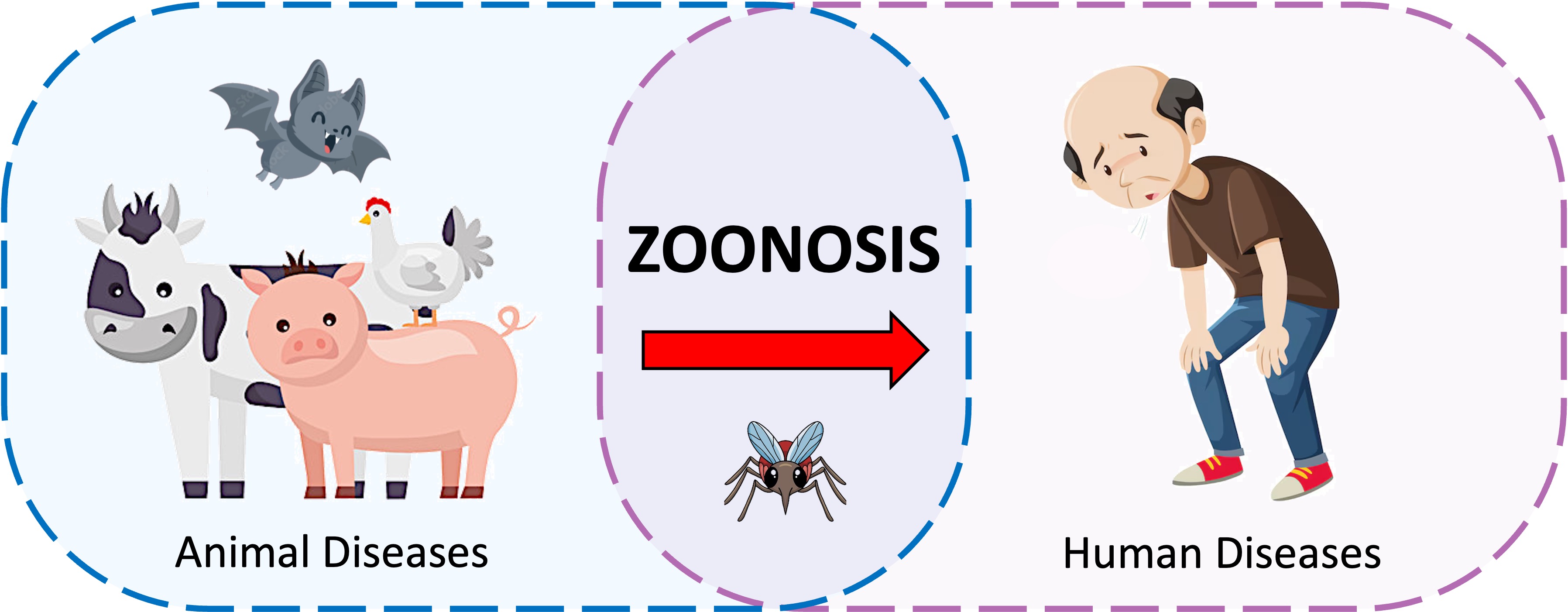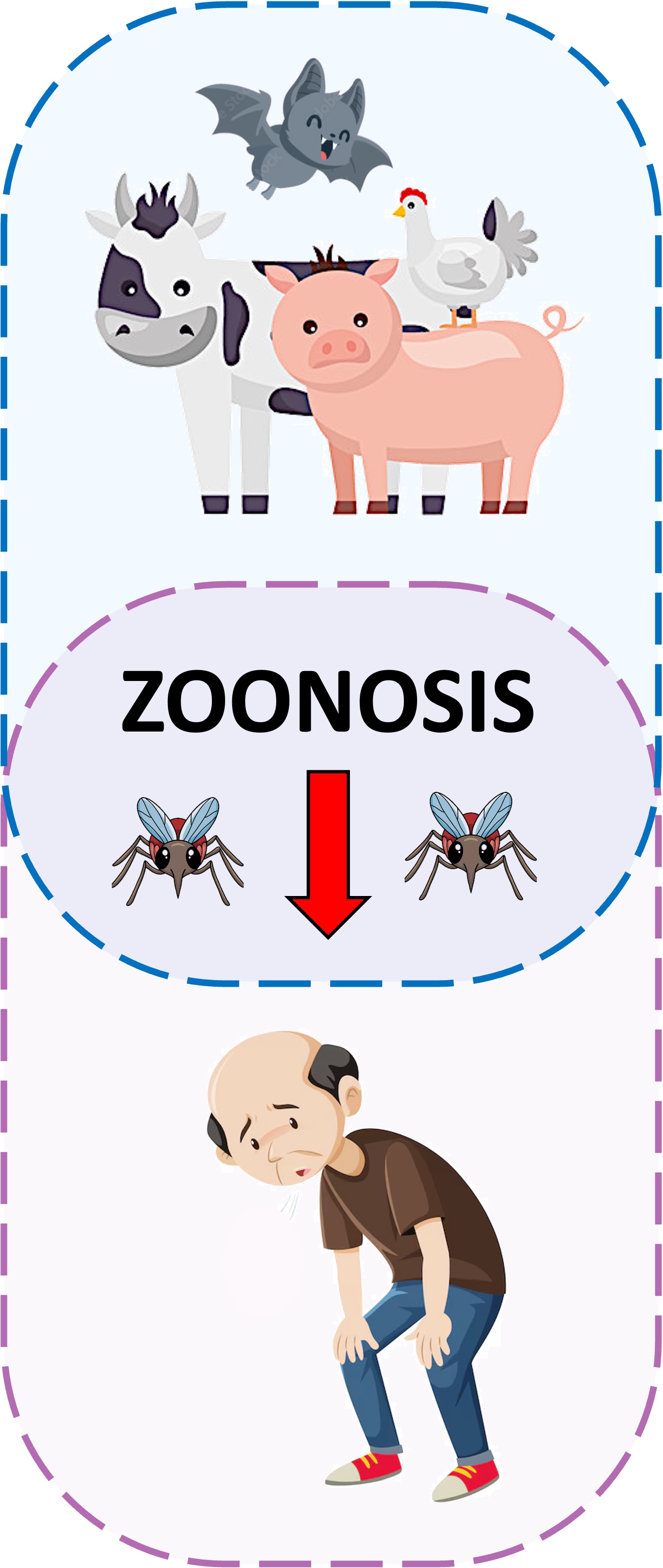

Zoonoses
A zoonosis is an infectious disease that can be transmitted from other species to humans (i.e. can cross the species barrier)
-
Zoonosis can either be transferred directly from the non-human host or may be transmitted by an unaffected intermediate species (referred to as a vector)
The infected animals can act as a reservoir for the pathogen, allowing it to survive even if it is eradicated in humans
-
This may facilitate the re-emergence of an infectious disease in a population where it had previously been eliminated
The frequency of outbreaks of zoonotic diseases are increasing in modern society due to a number of factors:
-
Agricultural practices (such as farming) are increasing human exposure to animals that may act as reservoirs for zoonotic infections
-
Human induced climate change is altering the breeding cycles and geographic distribution of biological vectors such as rodents and mosquitos
-
Urbanisation and deforestation is forcing native wildlife into closer proximity to humans, increasing exposure to zoonotic pathogens
Examples of zoonotic diseases include tuberculosis (cattle), rabies (wild animals) and Japanese encephalitis (mosquitoes)
-
Current evidence suggests that the Covid-19 pandemic may also have originated as a zoonotic infection (in bats)
Tuberculosis
-
The bacterium that causes tuberculosis in cattle (M. bovis) is closely related to the human variant and can cross the species barrier
-
Tuberculosis generally affects the lungs and results in the formation of nodules, leading to a chronic cough with bloody mucus
-
Bovine tuberculosis was commonly transmitted to humans via the consumption of raw milk from infected cows, however improved pasteurisation techniques have reduced this risk
Rabies
-
The rabies virus has an extremely wide range of animal hosts – including birds, reptiles and mammals
-
The disease initially presents with flu-like symptoms before triggering a variety of neurological symptoms, including irritability and aggressiveness
-
Rabies is typically transmitted through direct contact with an infected animal (e.g. via a bite or a scratch)
Japanese Encephalitis
-
Japanese encephalitis is caused by a virus (JEV) that infects the brain, causing inflammation that can potentially lead to seizures
-
It commonly originates in pigs and wild birds, but is spread via contact with infected mosquitoes
Zoonotic Diseases






